The Only Thing Worse Than Valentine's Day Is Valentine's Day
It contains every Hollywood star—and every bad rom-com trope.
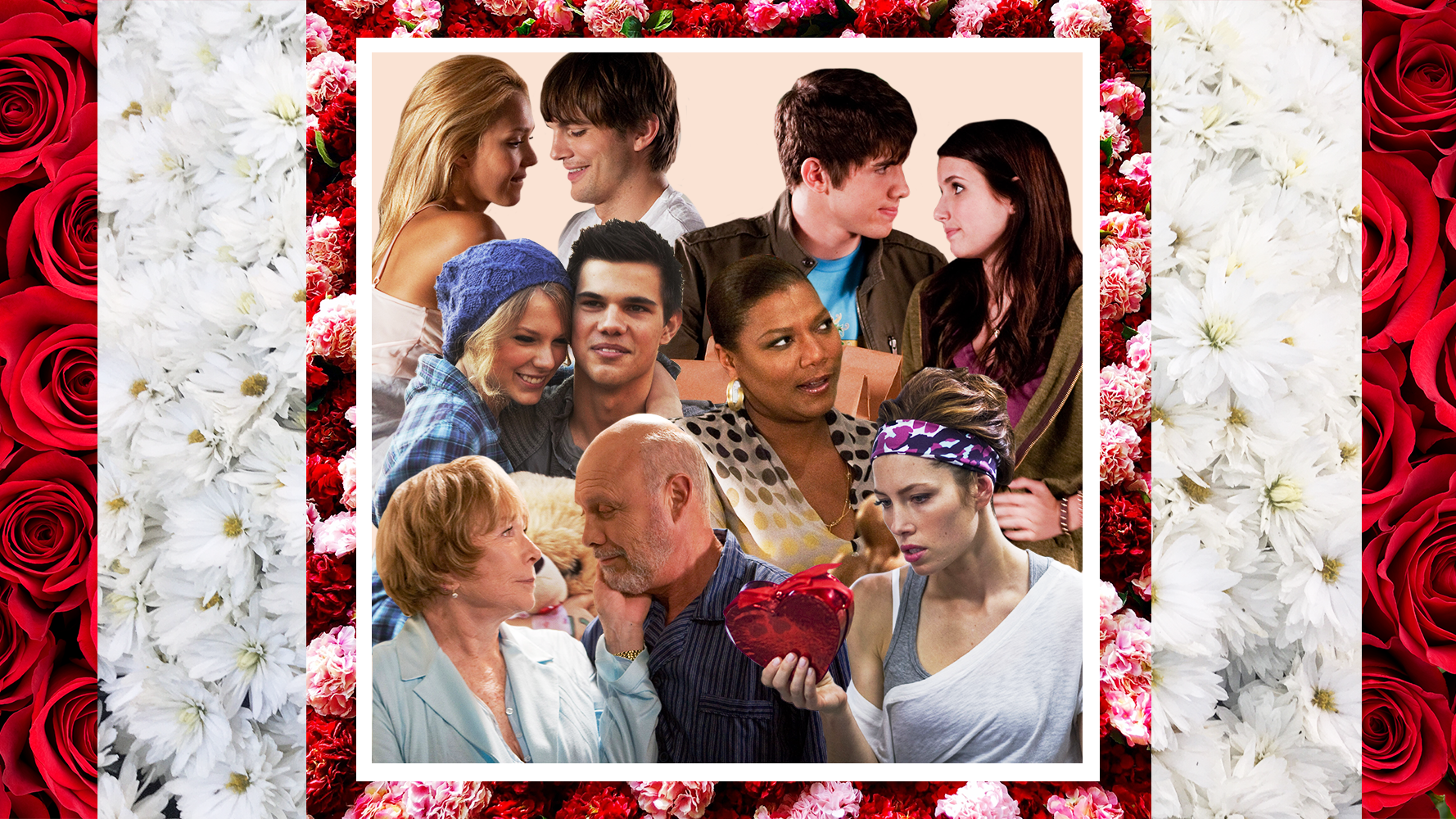

The worst Valentine’s Day I ever had was the one where I got dumped the night before. I was 23 years old and madly in love with a wonderful man, who chose the evening of the thirteenth of February to heave me, head first, into the beginning of a rom-com. The next day, I woke up feeling like I’d been broken in half, my eyes so puffy from crying I could barely see, to find the world celebrating love in all its forms. The city was in a February deep freeze, and I was all alone, and I couldn’t remember ever feeling so miserable.
That was my worst Valentine’s Day. My second worst Valentine’s Day was... the movie Valentine’s Day. This movie, like the pretend holiday itself, is a tribute to love—specifically, it is a tribute to the audience’s love of the hit romantic comedy Love, Actually. It is a cynical, utterly see-through attempt to take that movie and its many-connected-plotlines formula, add even more movie stars, and plonk it down in Los Angeles, where there are generous tax subsidies for filming and you don’t have to spend any money on fake snow.
Don’t get me wrong: I love romantic comedies. I really do. I love them so much I spent four years studying them and wrote an entire dissertation about them (don’t worry, my parents have another child, and she turned out great). I adore Notting Hill and When Harry Met Sally and Warm Bodies, which is a highly underrated romantic comedy about the undead—a zom-rom-com!
But this romantic comedy? This romantic comedy is only slightly better than getting your heart ripped out at 9:30 p.m. on February 13.
Valentine’s Day was directed by Garry Marshall, who made Beaches and Pretty Woman and The Princess Diaries and many other rom-coms (but for my money, his best work was playing Walter Harvey, the Candy Bar King, in A League of Their Own). The screenplay was written in part by Katherine Fugate, who co-wrote The Prince and Me and created the show Army Wives. It came out in early 2010, just before Valentine’s Day, obviously.
Here’s a quick and easy plot summary, in case it’s been a while since you’ve watched it:
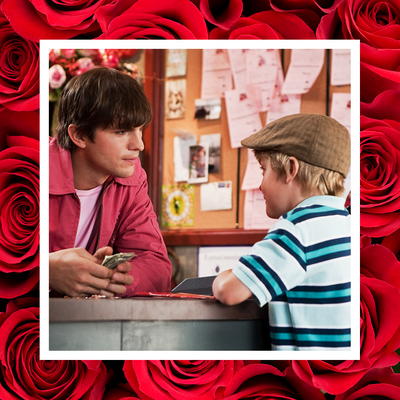
Ashton Kutcher, who works with George Lopez, proposes to Jessica Alba, but is secretly in love with Jennifer Garner, who is dating a secretly-married Patrick Dempsey. In Jennifer Garner’s elementary school classroom is a cute kid, who is the film’s most obvious rip-off of Love, Actually. He should be sad about his absent mother, but instead he is in love with Jennifer Garner, and that creates a hassle for his grandparents, Hector Elizondo and Shirley MacLaine, and his babysitter, Emma Roberts, who is planning to lose her virginity on Valentine’s Day, much to the delight of her best friend, Taylor Swift, and Taylor’s boyfriend, Taylor Lautner. Meanwhile, Jennifer Garner’s sad and neurotic best friend Jessica Biel is trying to find a new gig for her top client, NFL quarterback Eric Dane, whose agent, Queen Latifah, has a temp, Anne Hathaway, who is dating a guy in the mail room, Topher Grace. Jamie Foxx is a sports journalist who wants to cover the football story but whose boss, Kathy Bates, makes him do a segment on Valentine’s Day, but then Dane comes out and wins back his estranged boyfriend, Bradley Cooper, who has spent the entire movie on a plane sitting next to Julia Roberts, who is coming home to her Obvious Rip-Off Of Love, Actually...I mean son. Did I miss anyone? Probably!
Stay In The Know
Get exclusive access to fashion and beauty trends, hot-off-the-press celebrity news, and more.
It’s like going on a speed date that ends in a marriage proposal.
I am sure that every single one of these actors worked hard on this movie for the three-and-a-half days each of them was on set. But that is a lot of storylines to cram into 124 minutes, and despite Fugate and her co-writers’ best efforts, you arrive at the end of the movie exhausted and wishing you had a red-twine-covered pinboard on which you could map out all the various connections between them. You’re also barely invested in any of them, even though each couple has gone through a full storyline by the time the credits roll. It’s like going on a speed date that ends in a marriage proposal.
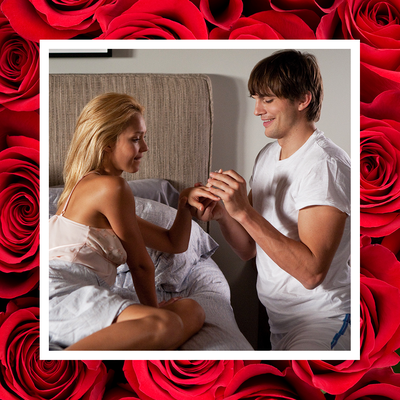
I do want to examine a few storylines, though, starting with the Jessica Alba-Ashton Kutcher-Jennifer Garner one. At the start of the movie, Kutcher’s character Reed proposes to Alba’s character Morley. She is both surprised and shocked by the proposal, which is never a good sign: You can be the former, but you should never, ever be the latter. Before he can propose, though, Reed has to wake Morley up and pull her hand out from under her pillow and when he does, we see that—dun dun duuuun—she has fallen asleep holding her Blackberry.
This is rom-com shorthand for “ambitious corporate career lady” See also: falling asleep with a laptop open on the bed, falling asleep at a desk, driving a car very fast then parking with a screech and stepping out in black high heels, shouting things at scurrying subordinates while striding between office cubicles. All these visual cues say “I am devoted to my work and it has rendered me dead inside so that I cannot love unless a man saves me by getting me fired or my sister dies and I have to leave my job to move to the country and raise her child.”
After we’re presented with these clues that Morley is a sad hollow product of feminism who cannot love Reed properly because she also loves financial independence and wearing pencil skirts (we never learn what she does for living, only that it involves meetings and a Blackberry and pencil skirts), we are not surprised when, halfway through the movie, she changes her mind about marrying him. “I should be thinking about our future together, but I’m still focused on my future,” she tells Reed as she hands back the engagement ring he gave her five hours ago. “The first phone call I made after you proposed was to my office, to confirm my 10 o’clock meeting.”
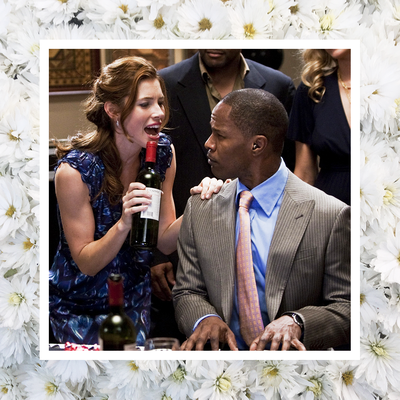
In his heartbreak, Reed turns to his best woman friend Julia (that’s Jennifer Garner, who is dating Patrick Dempsey, who is… sorry, I nearly fell down that rabbit hole again). Julia never thought Reed and Morley were good together, though she never told Reed how she felt. Julia does one of the several jobs that, for women in romantic comedies, signals a good heart capable of love: She’s an elementary school teacher. Other acceptable professions include: baker, writer (fiction only), caterer, wedding planner, assistant, and bookshop owner. These jobs involve taking care of people (bonus points if the people are children!), spending time in a kitchen, and/or making very little money. They’re non-threatening and feminine, and almost never involve stalking through an office or wielding any kind of authority over men.
One of the most frustrating things is that many of the paper-thin plots would make for perfectly decent standalone movies.
In the years before Valentine’s Day came out, there were lots of movies in which ambitious corporate career ladies learned that feminism had actually ruined their lives: The Ugly Truth, The Proposal, and New In Town were the best (i.e., worst!) examples of this trend. They were a callback to the backlash rom-coms of the 1980s—remember Baby Boom?—in which women were forced to retreat from the workforce in the name of family and motherhood, and discovered that this was what they had secretly yearned for all along.
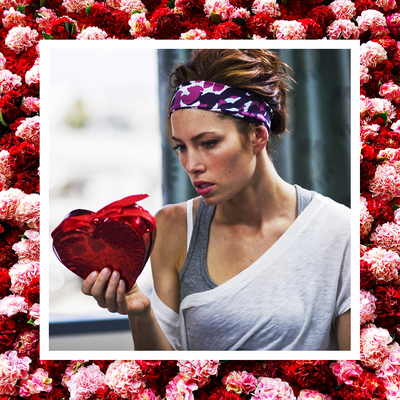
And in fact, the trope pops up a second time in this movie, and there’s another goddamn Blackberry involved! Jessica Biel plays Kara, a workaholic publicist who spends the entire movie eating candy, miserable at being alone on Valentine’s Day. “My closest relationship is with my Blackberry. Thank God it vibrates,” she tells Jamie Foxx, a journalist who covers her client. “You know who’s always been here for me? My best friend, candy. That is my future.” Again, Kara is the personal publicist of an NFL quarterback whose team made the playoffs last year. Also, she weighs 102 pounds and her arms look like steel cables.
Even Queen Latifah’s character Paula—the quarterback’s agent—has been rendered all but inhuman by her professional choices: When her receptionist puts down the phone abruptly to talk to her, Paula says, “hangs up on her own mother, that’s cold. We might just get along.”
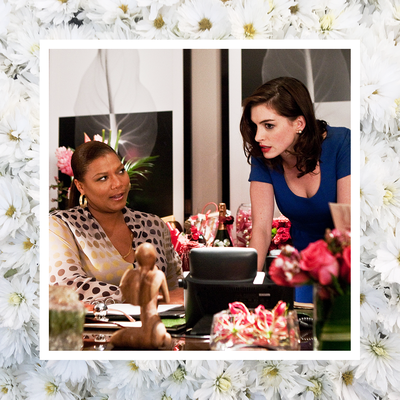
One of the most frustrating things about Valentine’s Day is that many of the paper-thin plots in this omnibus rom-com would make for perfectly decent standalone movies. Why not make a rom-com about Shirley MacLaine’s character, who was a Hollywood starlet in the 1960s, and Hector Elizondo, an architect and devoted husband who is heartbroken to learn of her long-ago infidelity? I would watch an entire movie—124 whole minutes—that told the story of their marriage! I would probably watch a rom-com starring Anne Hathaway as a temp who pays off her student loans by moonlighting as a phone sex worker, assuming the very idea of sex work wasn’t treated like a punchline and a threat to her boyfriend’s masculinity, as it is in Valentine’s Day. And, for the love of Aaron Rodgers, someone take the Bradley Cooper-Eric Dane storyline and make us the gay football rom-com we all deserve.
Fans of the genre will know that Valentine’s Day wasn’t the last in a line of rom-coms that are not so much star-studded and star-crammed. That’s in part because the formula, as exhausting and unfulfilling as it was, worked. Valentine’s Day made more than $200 million, and was followed by New Year’s Eve and Mother’s Day (and the “30 Rock” parody, Martin Luther King Day). Even the runaway hit rom-com of 2018, Crazy Rich Asians, has a hint of ensemble-overload to it. Unlike its predecessors, it does have a clear central love story, but there are four other couples whose relationships fall apart or come together over the course of the first film—and if the books are anything to go by, the sequels will involve much more multitasking.
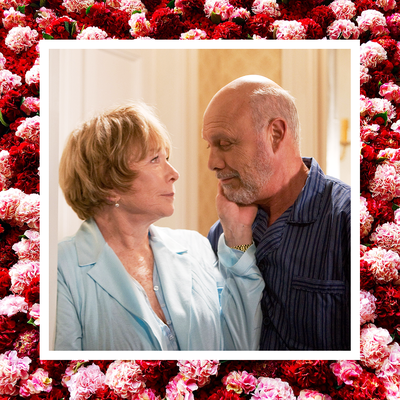
In theory, you can see the appeal of the omnibus rom-com. You’ve got something for everyone: old people, young people, straight people, gay people. People who love Valentine’s Day, people who hate Valentine’s Day. People who want to watch a science fiction movie in which Los Angeles has no traffic. It’s almost like the movie was written by that famous Oprah meme: you get a plotline, you get a plotline, everybody gets a plotline!
It seems like a safe investment strategy: diversify your assets. But the value of a rom-com is that it invests, deeply, in a love story. The rom-com is basically the only genre in which the movies are by, for, and about women. Where women’s stories are told in depth and in detail, with attention and empathy. That’s why rom-coms matter—and, not coincidentally, it’s also why they’re so often the target of mockery and derision. But women deserve movies that focus on us, on our experiences and our feelings. A hundred and twenty-four minutes is not that much to ask for.
There are lots of ways to spend your Valentine’s Day. On your own. With your friends. With your Blackberry in hand, because you’ve got important, world-changing shit to do. With your Person, because it’s just a regular Thursday, and you want to spend every regular Thursday with them for as long as you possibly can. Personally, I’m hoping to open a bottle of wine, eat a home cooked meal, and not repeat the experience of being dumped at a deeply ironic moment. Maybe we’ll watch a rom-com. Whatever you do, I hope you put you and your love at the center of it—if only for two hours and four minutes. In other words, this Valentine’s Day, I wish you a love story all to yourself.
MORE ROM-COM COVERAGE, RIGHT THIS WAY
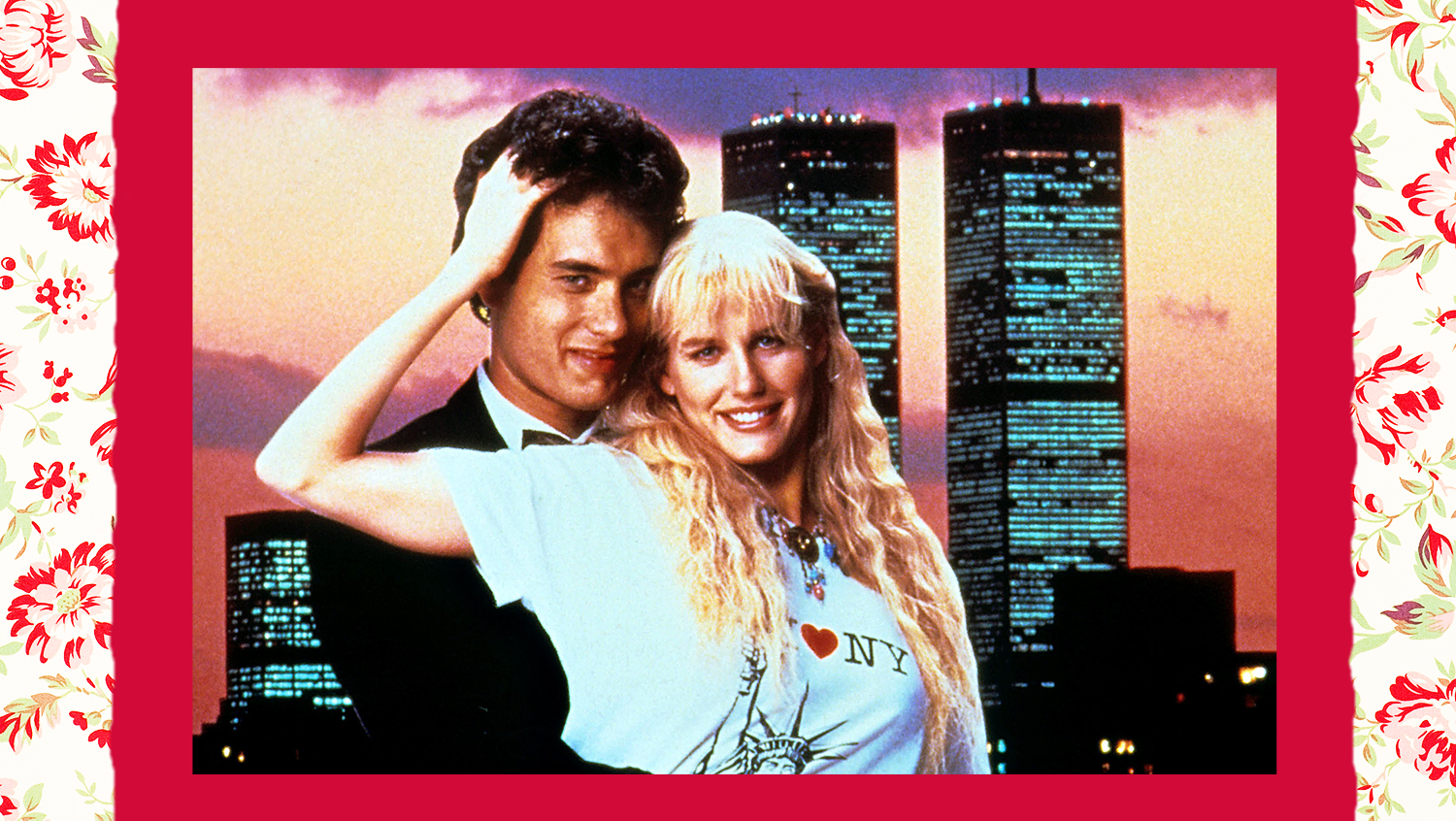
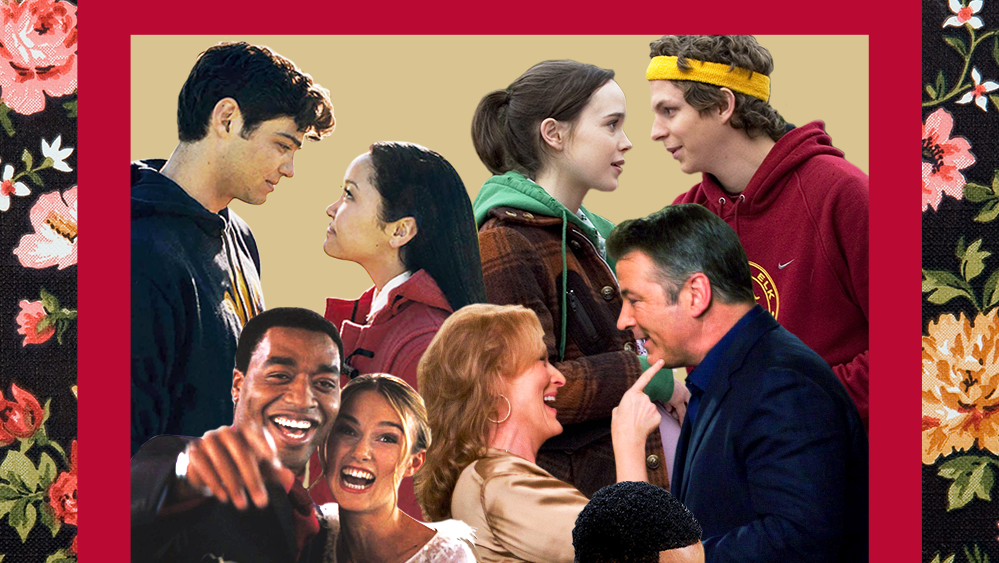
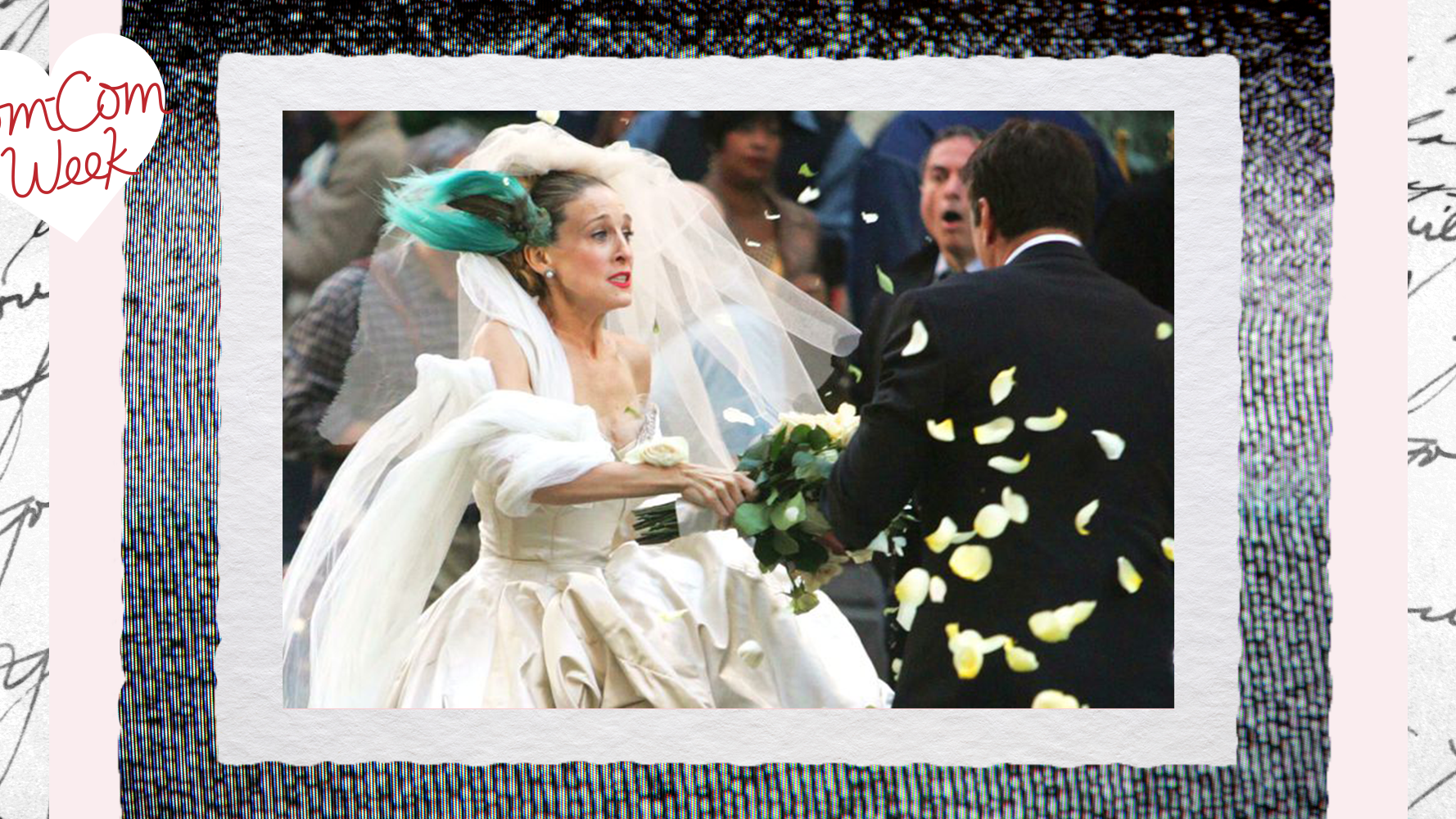
Chloe Angyal is a journalist who lives in Iowa; she is the former Deputy Opinion Editor at HuffPost and a former Senior Editor at Feministing. She has written about politics and popular culture for The New York Times, The Washington Post, The Atlantic, The Guardian, New York magazine, Reuters, and The New Republic. Angyal has a Ph.D. in Arts and Media from the University of New South Wales.
-
 Netflix's 'North of North' Transports Viewers to the Arctic Circle—Meet the Cast of Inuit Indigenous Actors
Netflix's 'North of North' Transports Viewers to the Arctic Circle—Meet the Cast of Inuit Indigenous ActorsThe new comedy follows a modern Inuk woman determined to transform her life.
By Quinci LeGardye
-
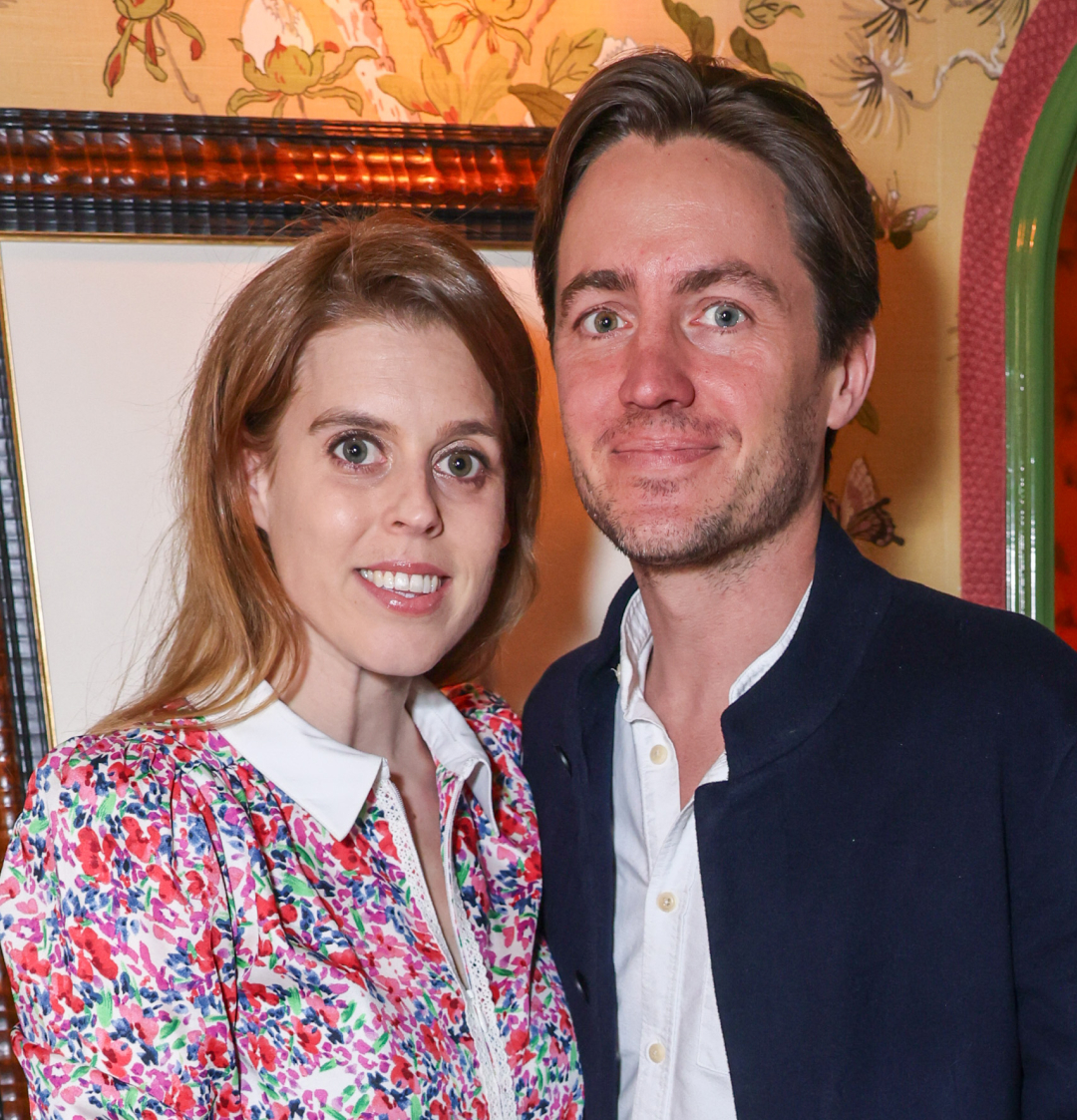 Princess Beatrice's Husband Pays a Rare Tribute to These Royal Family Members on Instagram
Princess Beatrice's Husband Pays a Rare Tribute to These Royal Family Members on InstagramEdoardo Mapelli Mozzi shared some behind-the-scenes snaps from the F1 Grand Prix in Bahrain.
By Kristin Contino
-
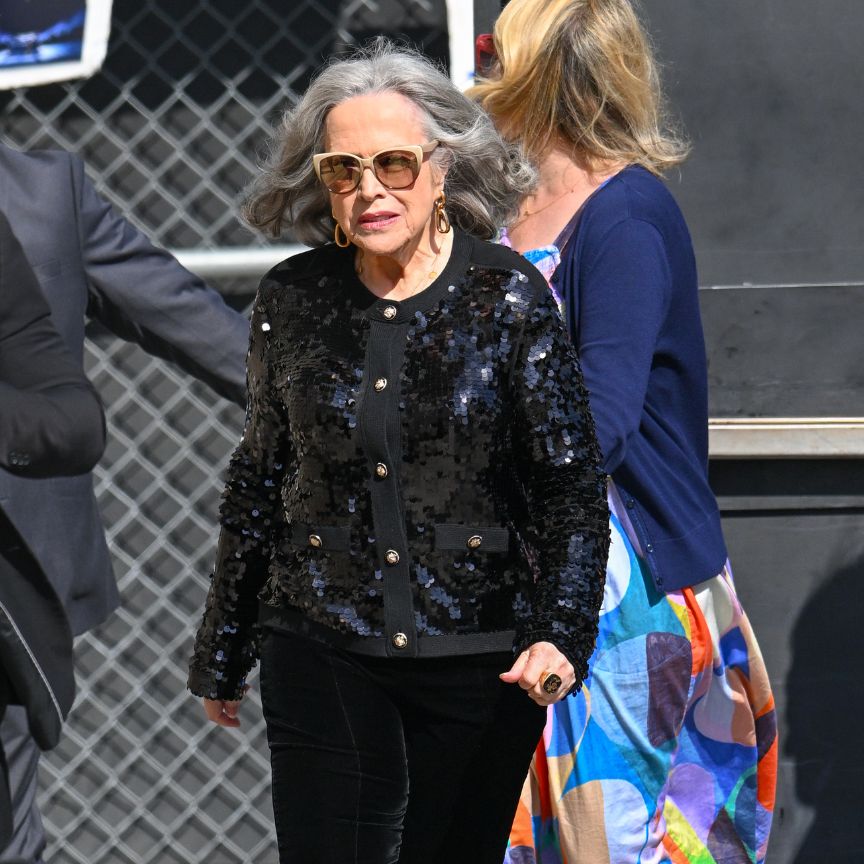 Allow Kathy Bates to Convince You to Grow Out Your Grays
Allow Kathy Bates to Convince You to Grow Out Your GraysOne look at her new style and you'll be canceling your root touch-up pronto.
By Ariel Baker
-
 What to Know About the 'North of North' Cast
What to Know About the 'North of North' CastThe new comedy follows a modern Inuk woman determined to transform her life.
By Quinci LeGardye
-
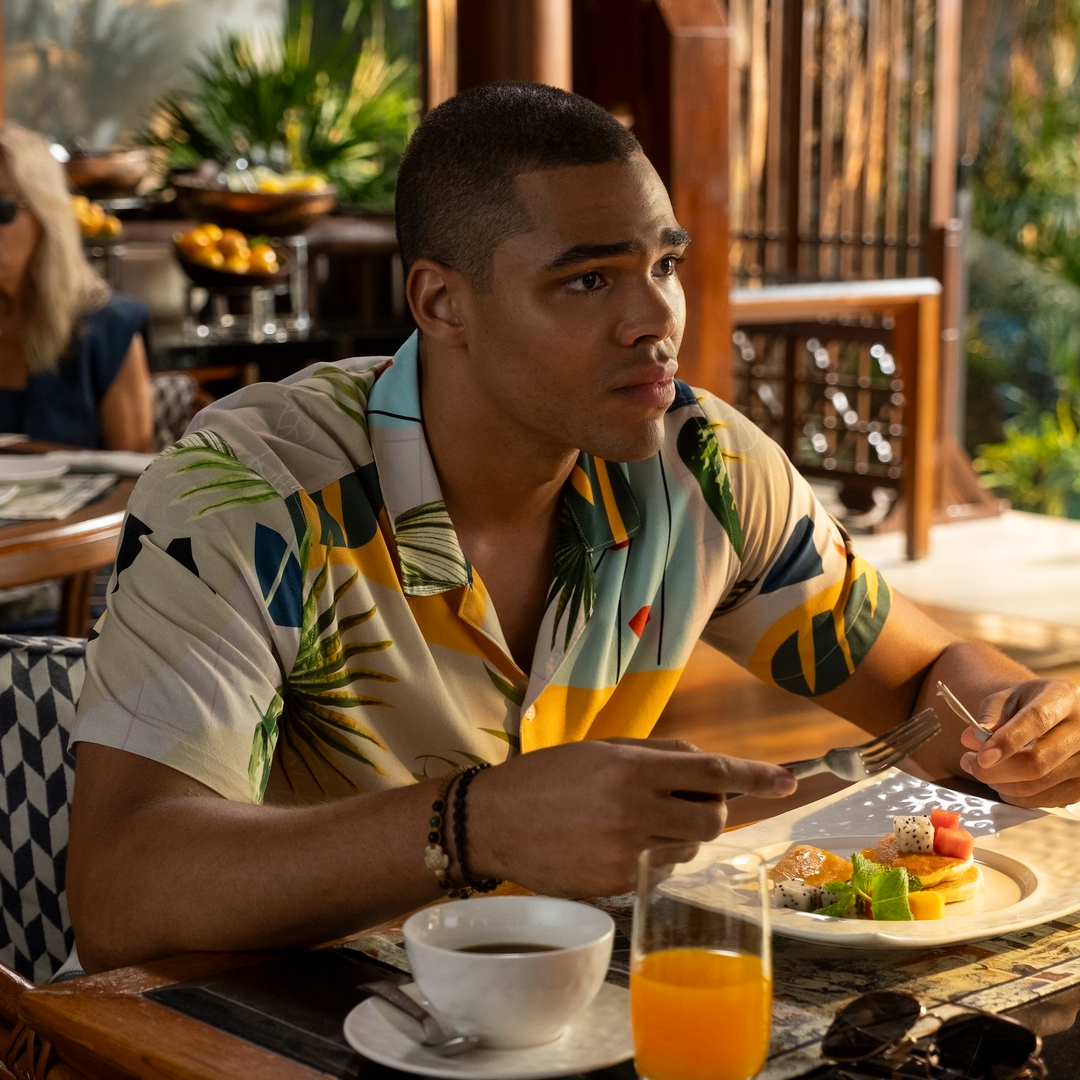 Meet Nicholas Duvernay, the Actor Who Plays Zion in 'The White Lotus' Season 3
Meet Nicholas Duvernay, the Actor Who Plays Zion in 'The White Lotus' Season 3We can't stop thinking about his scene-stealing performance in the finale.
By Quinci LeGardye
-
 'The White Lotus' Season 4: Everything We Know
'The White Lotus' Season 4: Everything We KnowCreator Mike White has already started teasing where the next installment will be set—and who might be back.
By Quinci LeGardye
-
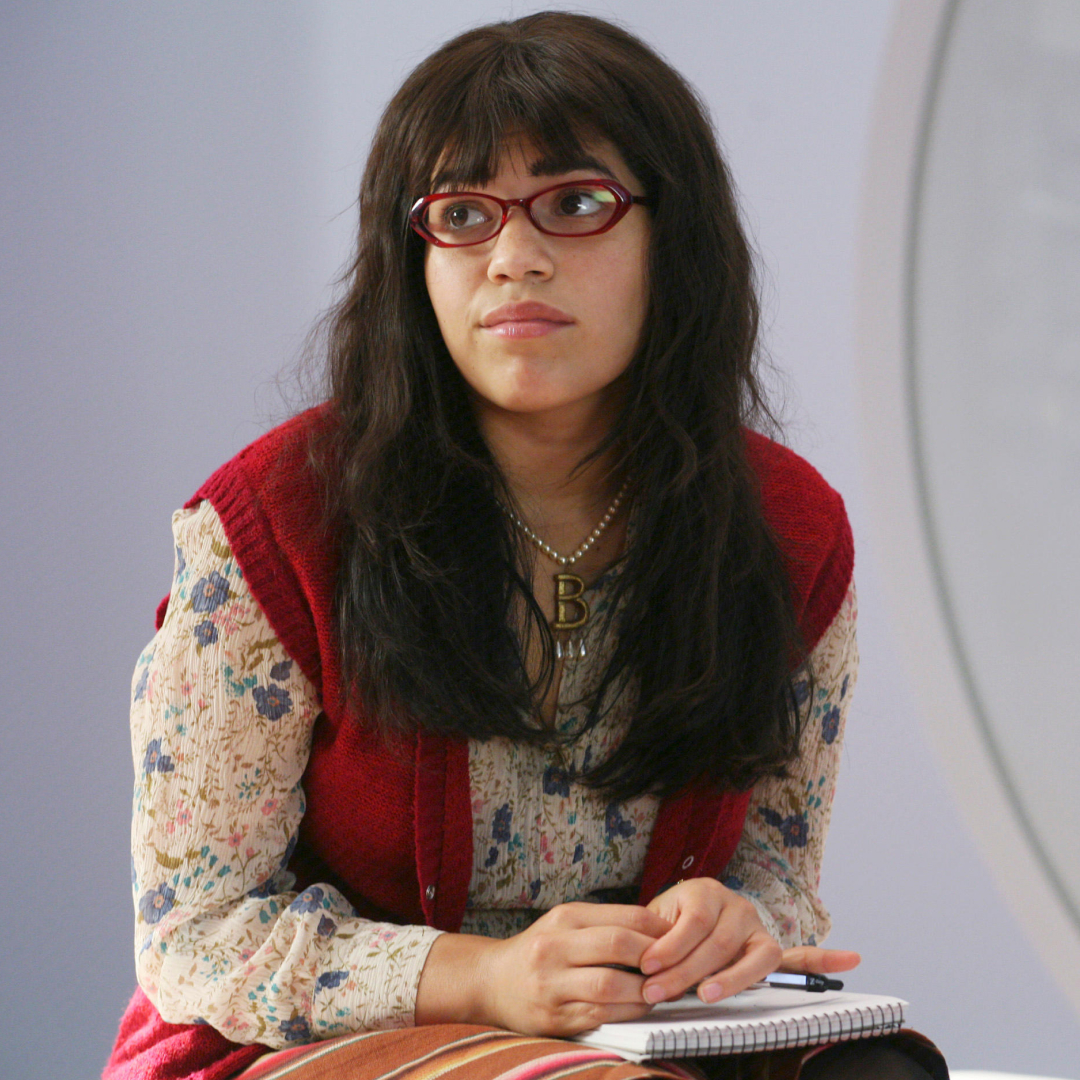 The Best Workplace TV Shows of All Time
The Best Workplace TV Shows of All TimeFrom iconic sitcoms to award-winning dramas.
By Iris Goldsztajn
-
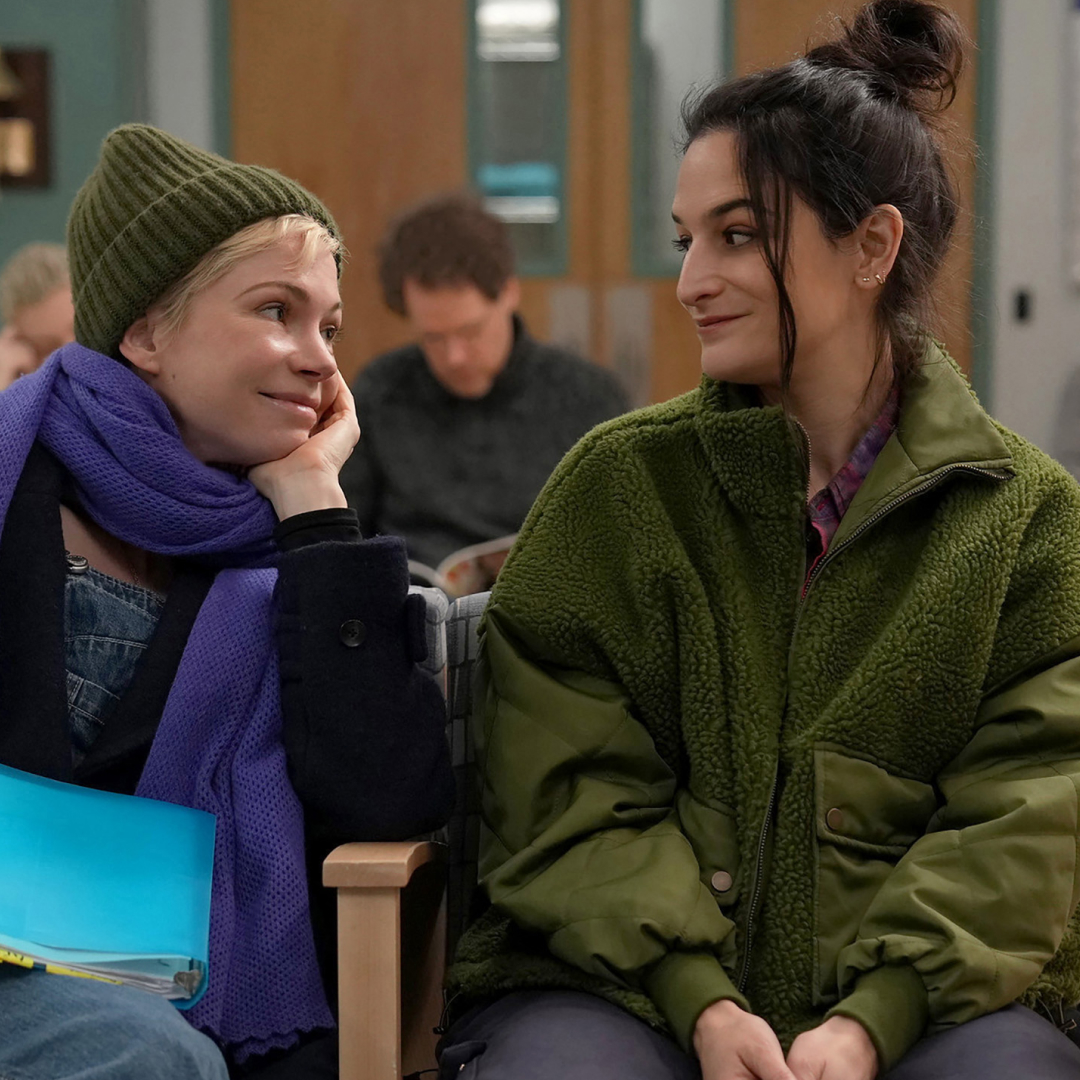 'Dying for Sex' Brought Jenny Slate to Life
'Dying for Sex' Brought Jenny Slate to LifeThe actress shares why playing Nikki in FX on Hulu's female friendship dramedy has felt like a life-changing part.
By Sadie Bell
-
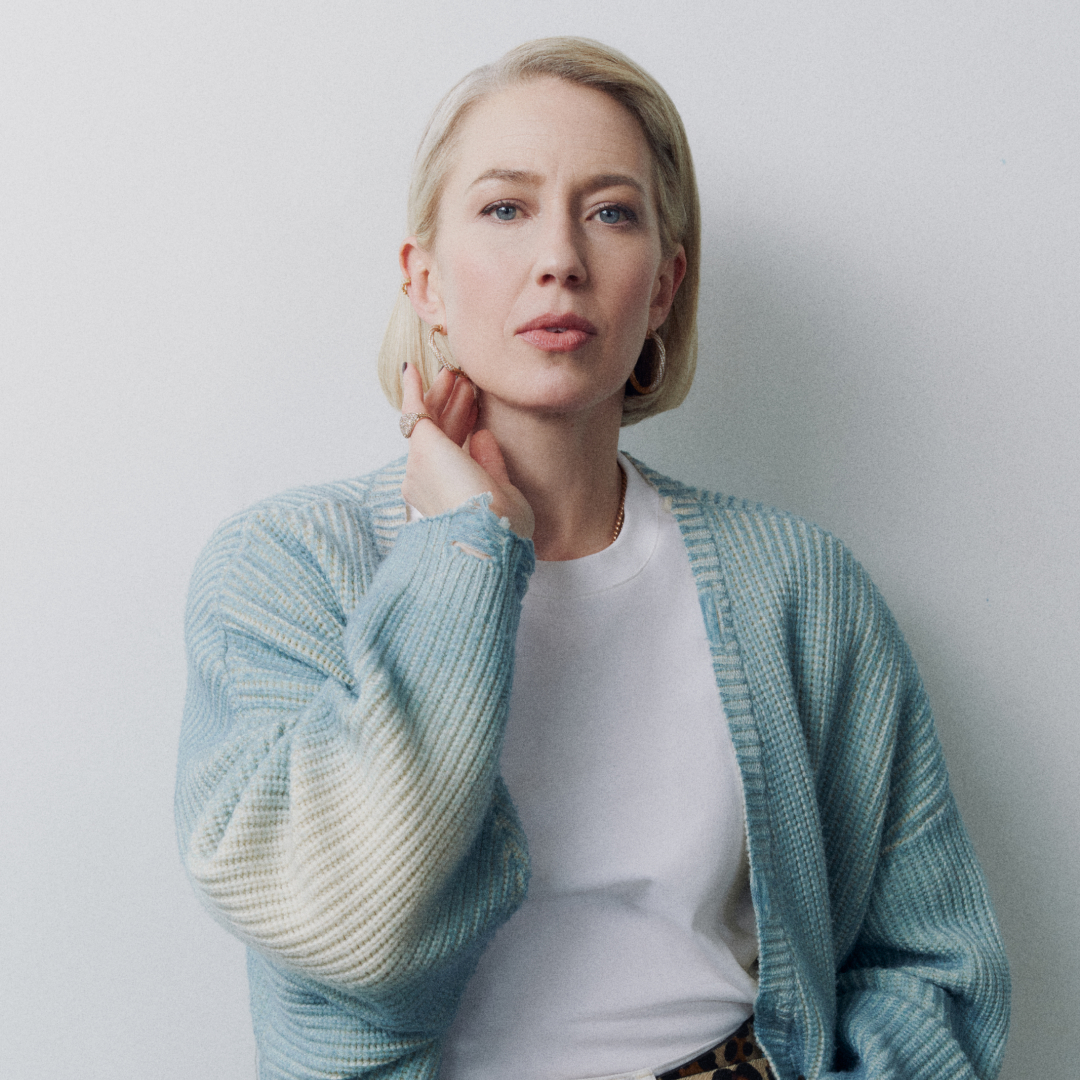 The Wild Ride of Carrie Coon
The Wild Ride of Carrie CoonLaurie's deep-set insecurities come to a head in episode 7 of 'The White Lotus,' allowing the actress to turn a "dark night of the soul" into an illuminating time.
By Jessica Goodman
-
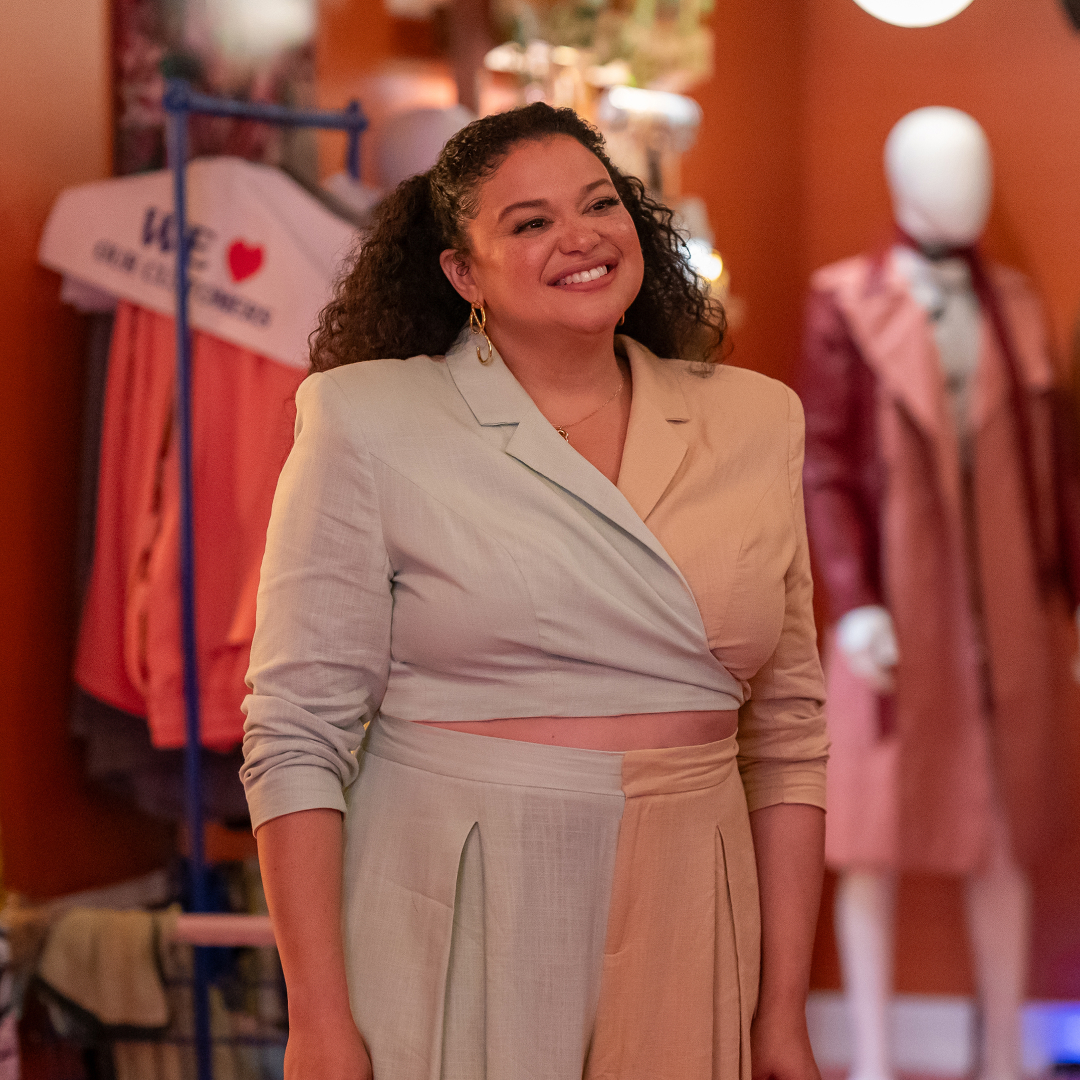 Meet the 'Survival of the Thickest' Season 2 Cast
Meet the 'Survival of the Thickest' Season 2 CastThere's so much to love about Michelle Buteau's Netflix comedy about a stylist looking for love and success.
By Quinci LeGardye
-
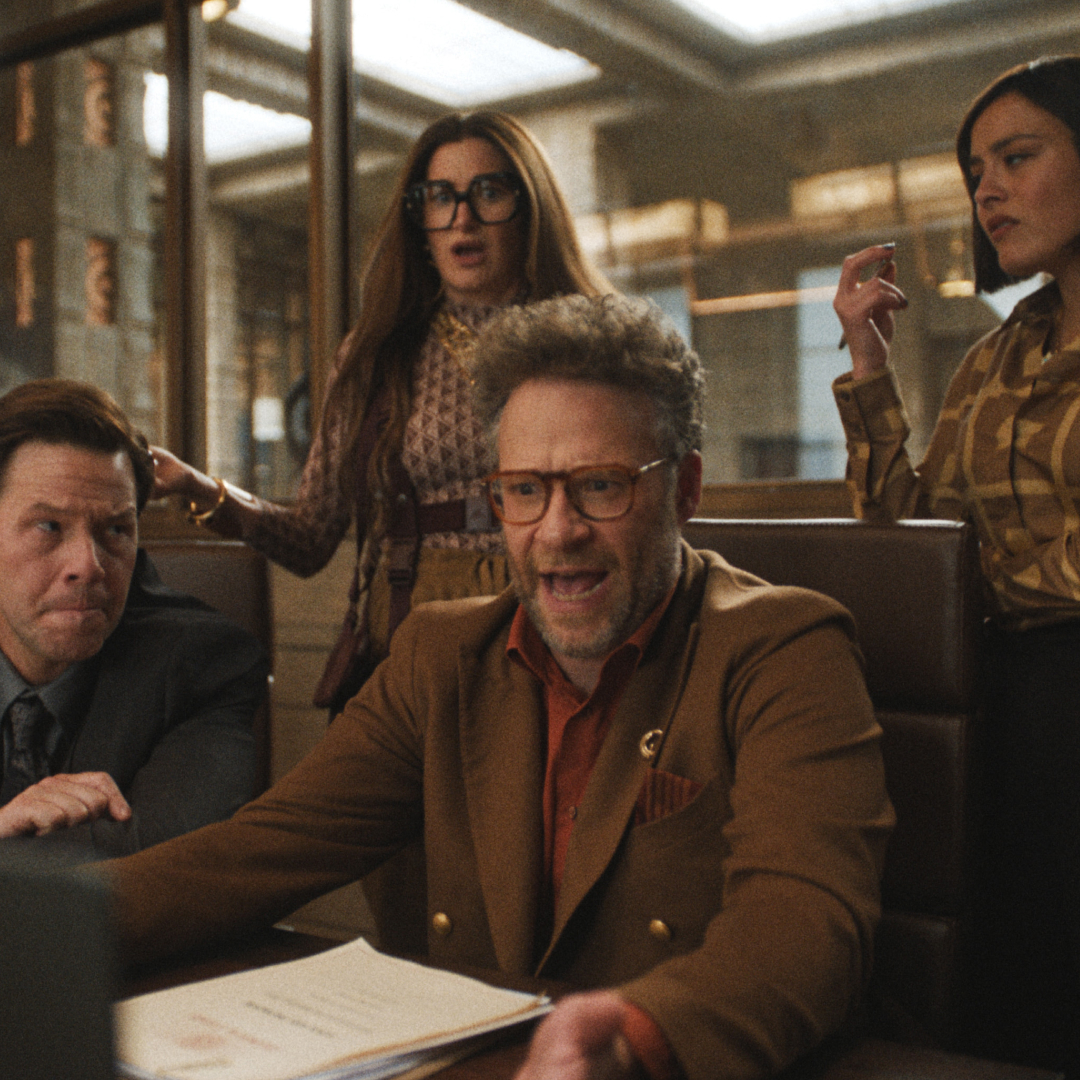 The Cast of 'The Studio': Your Guide
The Cast of 'The Studio': Your GuideThat's showbiz, baby!
By Quinci LeGardye